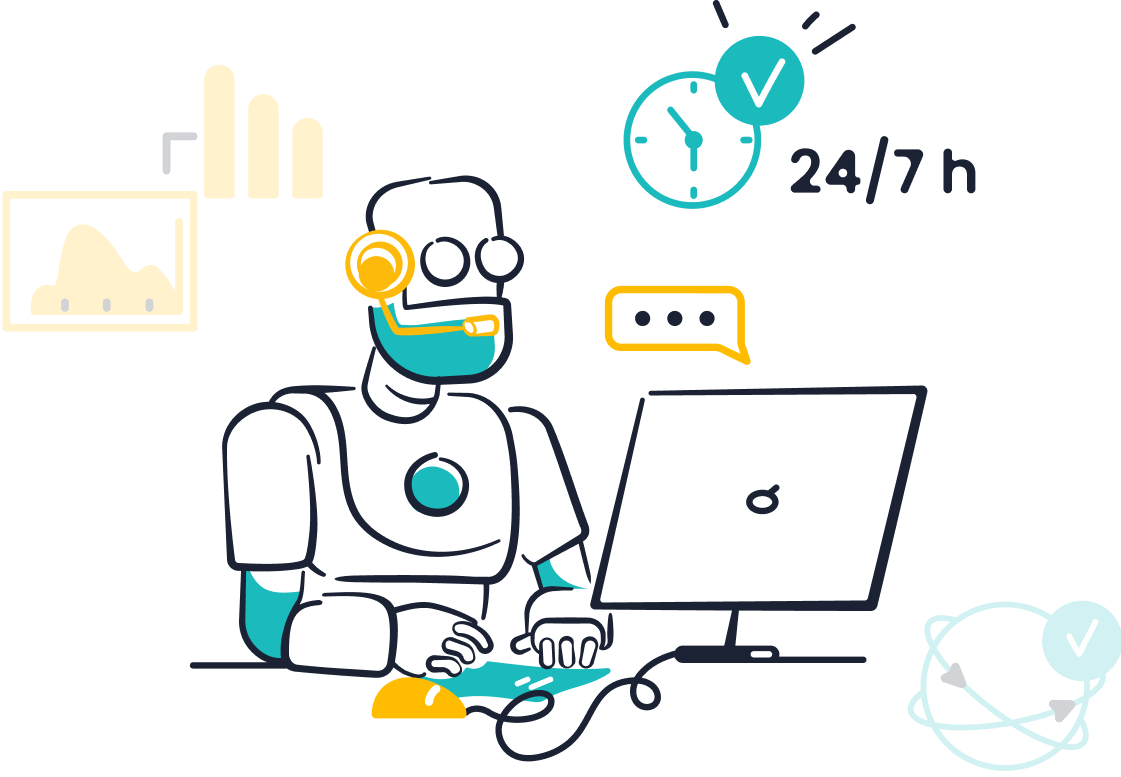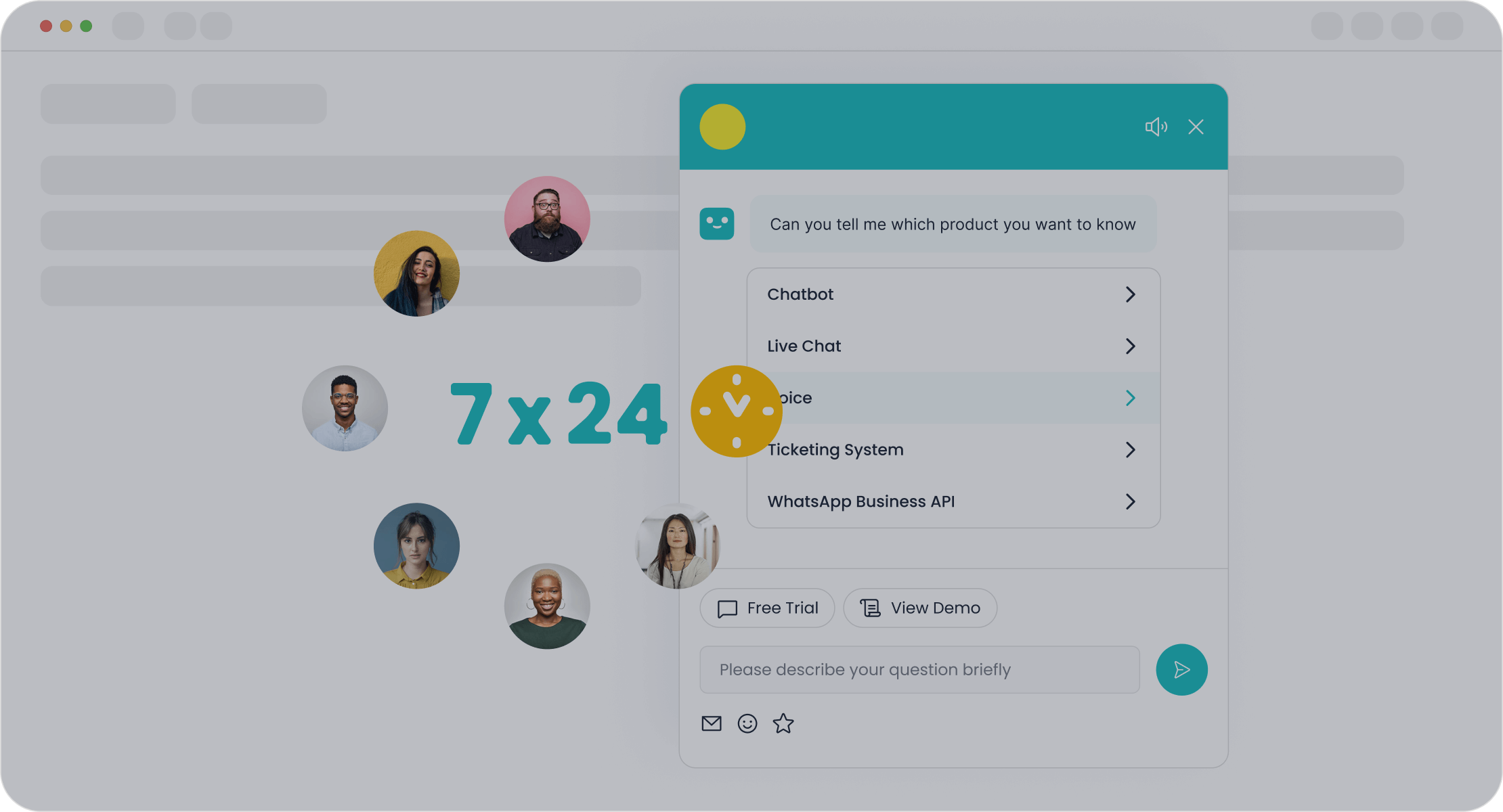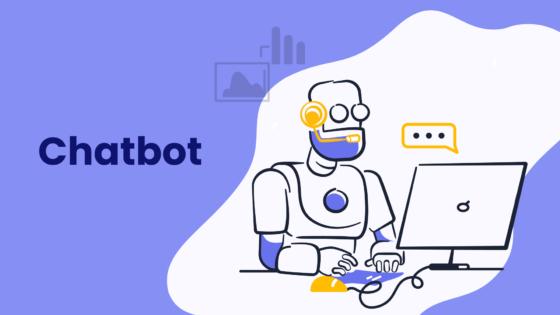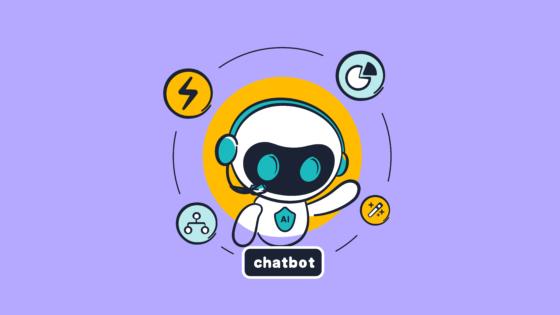Are the Benefits of AI Chatbot Better Than Traditional Methods

AI chatbots, like those from Sobot, often provide greater benefits than traditional customer service. The benefits of ai chatbot solutions include faster responses, lower costs, and 24/7 support, all of which help businesses meet customer support needs more effectively. Sobot AI stands out by offering instant replies and multilingual service, which boosts customer satisfaction. For example, OPPO saw a 25% drop in churn rate and a 20% rise in engagement after using Sobot’s chatbot. The following table shows how chatbots compare with traditional support:
| Feature | AI-Powered Chatbots | Traditional Customer Support |
|---|---|---|
| Availability | 24/7 | Limited hours |
| Response Time | Instant | Wait times |
| Cost Efficiency | High | Expensive |
| Scalability | Easy | Needs more staff |
| Emotional Intelligence | Lacks empathy | High |
Sobot’s real-world results prove that the benefits of ai chatbot technology can transform customer service for modern businesses.
Benefits of AI Chatbot vs. Traditional Customer Support
Sobot Chatbot Advantages

Sobot’s AI-powered chatbots bring many advantages to modern customer service. These chatbots work around the clock, answering questions at any time of day. Businesses see faster response times and higher efficiency. Sobot’s chatbot can reply to a customer in as little as two seconds. It can handle many conversations at once, which means no one has to wait in line. This is very different from traditional call centers, where customers often wait for help.
Note: Sobot’s chatbot helped OPPO reduce customer churn by 25% and increase satisfaction by 25%. Over 90% of OPPO’s customers reported positive experiences with AI-powered service.
The benefits of ai chatbot solutions also include cost savings. Sobot’s chatbot reduces support requests by 30% and lowers customer effort by 25%. This means companies spend less money on staffing and can use their resources better. The chatbot also helps generate more leads. For example:
- 97% of businesses plan to use AI in customer communications by 2025.
- 91% year-over-year increase in customer retention rates with omnichannel AI integration.
- 70% of customer interactions are expected to be handled by generative AI by 2025.
Sobot’s chatbot supports many channels, like WhatsApp, SMS, and social media. It gives customers a seamless experience, no matter where they reach out. The benefits of ai chatbot technology also include smarter and more meaningful engagement. Chatbots can provide instant support and send complex issues to human agents when needed.
Here is a table showing how Sobot’s chatbot compares to traditional chat support in key efficiency metrics:
| Efficiency Metric | Sobot Chatbot / AI-Powered Support | Traditional Customer Support |
|---|---|---|
| First Response Time | As low as 2 seconds; under 1 minute for first response | Several minutes to hours |
| Handling Capacity | Handles high volume of inquiries simultaneously | Limited simultaneous handling capacity |
| Reduction in Support Tickets | 40% reduction | N/A |
| Customer Satisfaction Increase | 30% increase | Typically lower due to slower responses |
| Complex Case Resolution Time | 52% reduction (ServiceNow example) | Longer resolution times |
| Customer Positive Experience | 80%+ positive feedback on AI interactions | Generally lower due to slower response times |
| Cost Savings | Significant due to automation and operational efficiency | Higher due to staffing and infrastructure costs |
The benefits of ai chatbot solutions are clear. Sobot’s chatbot improves efficiency, saves money, and helps businesses grow.
Traditional Customer Support Strengths
Traditional customer support still plays an important role in many companies. Human agents in traditional call centers offer empathy and understanding that chatbots cannot match. They listen to customers, show care, and build trust. Many people feel more comfortable talking to a real person, especially when they have complex or sensitive problems.
- Human agents use emotional intelligence to connect with customers.
- They solve complicated issues that need creativity and judgment.
- They understand cultural differences and can adapt their communication style.
- Customers often report higher satisfaction and trust after speaking with a human agent.
A study with 199 participants found that people felt more satisfied and trusted traditional customer support more than chatbots. Human agents help build long-term relationships with customers. While ai-powered chatbots handle routine questions quickly, traditional chat support remains essential for situations that need empathy and personal attention.
Tip: Many companies now use a mix of chatbots and traditional customer service to get the best results. AI handles simple tasks, while humans focus on complex or emotional issues.
The strengths of traditional chat support include:
- Empathy and emotional connection
- Ability to handle unique or difficult cases
- Building trust and loyalty through personal interaction
Both Sobot’s chatbot and traditional customer support have unique strengths. The benefits of ai chatbot solutions shine in speed, cost, and scalability, while traditional call centers excel in empathy and trust.
24/7 Availability and Response Time

Sobot Chatbot for Instant Support
Sobot Chatbot stands out with its 24/7 availability and constant availability across many channels. Businesses using Sobot can offer immediate assistance to customers at any time, day or night. The chatbot supports dozens of languages, so customers can get help in their native language without waiting for a bilingual agent. Sobot Chatbot works on chat, email, social media, messaging apps, and voice platforms. This means customers always have a way to reach support.
Customers expect instant answers when they have questions. Sobot Chatbot delivers faster response times, often replying in just 1-2 seconds. During busy periods, chatbots handle hundreds or even thousands of conversations at once. This level of scalability is not possible with traditional customer service. Sobot Chatbot also provides consistent and personalized responses, which helps improve customer satisfaction and reduces wait times.
Key benefits of Sobot Chatbot’s 24/7 availability include:
- Support in multiple languages without extra staff
- Seamless service across all major channels
- Instant answers and faster response times
- Ability to handle high volumes without delays
Traditional Customer Service Limitations
Traditional customer service faces several challenges. Most teams work only during business hours, so customers may wait until the next day for help. Human agents can only handle a few conversations at once, which leads to long wait times during peak hours. Language barriers can also slow down support, especially for global businesses.
The table below shows how traditional customer service compares to Sobot Chatbot:
| Aspect | Traditional Human Customer Service | Sobot Chatbot (AI) |
|---|---|---|
| Average Response Time | 5-10 minutes | 1-2 seconds |
| Simultaneous Conversations | 5-10 | Hundreds to thousands |
| Availability | Limited (working hours, breaks) | 24/7 availability |
| Customer Abandonment Impact | 60% abandon if wait too long | Significantly reduced |
Many customers leave if they wait too long for help. Traditional customer service cannot match the constant availability and speed of chatbots. Businesses that rely only on human agents may face higher operational costs and lower customer satisfaction.
Cost and Efficiency in Customer Service
Reducing Costs with Sobot Chatbot
Sobot Chatbot helps businesses save money and work more efficiently. Many companies spend a lot on traditional customer service teams. They must hire, train, and manage many staff members, especially during busy times. These costs add up quickly. Sobot Chatbot changes this by handling routine questions automatically. It does not need breaks or extra pay for overtime. Companies using Sobot Chatbot can cut customer service expenses by up to 50%. This makes it a cost-effective solution for businesses of all sizes.
Sobot Chatbot works 24/7 and can answer hundreds of questions at once. This means companies do not need to hire extra staff during peak seasons. For example, some businesses have reduced seasonal hires by over 50% after switching to AI. The average cost per call drops from $2.70–$5.60 to almost zero for automated chats. Sobot Chatbot also routes tickets to the right agent, so human staff can focus on complex issues. This boosts productivity and keeps costs low.
Tip: Sobot Chatbot offers a cost-effective solution for companies that want to grow without increasing their support budget.
Efficiency of Traditional Methods
Traditional customer service relies on human agents to answer calls and messages. Traditional call centers must hire and train many people to handle high volumes of questions. This process takes time and costs a lot of money. When demand rises, traditional call centers often struggle to keep up. They may need to hire temporary workers, which increases expenses even more.
Traditional customer service teams also face challenges with efficiency. Agents can only handle a few conversations at once. Long wait times can frustrate customers and lower satisfaction. Labor-intensive processes make it hard to scale quickly. While traditional call centers excel at solving complex problems, they cannot match the speed and cost-effectiveness of AI-powered chatbots for routine tasks.
Companies looking for a cost-effective solution often choose AI chatbots to handle simple questions and reduce the workload for human agents.
Personalization and Customer Experience

AI Chatbot Personalization
AI-powered chatbots like Sobot have changed how businesses deliver personalized responses to customers. These chatbots use advanced algorithms and real-time analytics to learn from every interaction. Sobot’s chatbot can remember past conversations and use this information to offer personalized responses that match each customer’s needs. For example, Sobot’s system can recognize returning customers and suggest products based on their previous purchases. This level of personalization helps create a more engaging and enjoyable customer experience.
A recent study with 475 participants found that customers notice when chatbots have unique identities, such as different genders or personalities. However, the most important factors for continued use are perceived enjoyment and usefulness, not just the depth of personalization. Sobot’s AI-powered chatbots focus on making interactions enjoyable and helpful, which encourages customers to return. The chatbot also uses proactive messaging to reach out with special offers or reminders, creating a more personalised service.
Sobot’s data-driven insights allow businesses to see what customers want in real time. The chatbot can predict needs, answer questions instantly, and even adapt its tone using sentiment analysis. Samsung Electronics improved its customer experience after adopting Sobot, achieving a 97% satisfaction rate and a 30% increase in agent efficiency. These results show how enhanced personalization and personalized interaction at scale can lead to an enhanced customer experience and higher loyalty.
Human Empathy in Traditional Service
Traditional customer service relies on human agents who can show empathy and build trust. People often feel more comfortable sharing sensitive issues with another person. Studies show that users see human agents as more empathetic than chatbots, especially in complex or emotional situations. Human agents can listen, understand feelings, and respond with care. This emotional connection helps create strong relationships and loyalty.
While chatbots provide fast and personalized responses, they cannot fully replace the empathy of a human. Customers often prefer speaking to a person when they face difficult problems. Empathy remains a key advantage of traditional service, especially for issues that need understanding and support. Research highlights that transparency about whether a response comes from a human or AI can also affect how much empathy customers feel.
Tip: Many companies combine AI-powered chatbots with human agents to balance personalisation, efficiency, and empathy for the best customer experience.
Handling Complex Inquiries and Escalations
Sobot Chatbot for Routine Issues
Sobot Chatbot handles routine customer questions with speed and accuracy. Many businesses see that up to 80% of customer inquiries are simple and repeat often. Sobot Chatbot can answer these questions without human help. This means customers get fast answers, and support teams save time. For example, OPPO used Sobot’s AI customer support and reached an 83% chatbot resolution rate. This shows that Sobot Chatbot can solve most routine issues on its own.
Sobot Chatbot uses a large knowledge base to give correct answers. It works day and night, so customers never have to wait for help. When a customer asks a question, the chatbot checks its information and gives a clear reply. If the question is too hard or needs a special touch, Sobot Chatbot knows when to send it to a human agent. This process keeps support running smoothly and helps customers feel heard.
Note: Sobot Chatbot improves customer satisfaction by solving regular questions quickly and sending complex inquiries to the right person.
Human Agents for Complex Inquiries
Some customer problems need more than a quick answer. Complex inquiries often involve special cases, emotions, or detailed explanations. Human agents step in to handle these situations. They listen, ask questions, and use their judgment to find the best solution. Sobot Chatbot helps by passing these complex inquiries to the right agent, so nothing gets lost.
OPPO’s experience shows how well this system works. During busy times, Sobot Chatbot managed routine questions, while human agents focused on complex inquiries. This teamwork led to faster service and happier customers. The chatbot’s ability to recognize when to escalate ensures high accuracy and smooth support. Businesses that use both AI and human agents can handle all types of customer needs, from simple to complex inquiries.
Scalability and Omnichannel Support
Sobot’s Omnichannel Capabilities
Sobot’s AI-powered platform gives businesses the power to connect with customers on any channel. The system brings together chat, voice, WhatsApp, SMS, email, and social media into one easy-to-manage workspace. This approach helps companies reach customers wherever they are, making every interaction smooth and consistent. Sobot’s omnichannel AI can handle up to 95% of customer inquiries, which means fewer questions go to human agents. Companies using Sobot see a 25% jump in customer response rates and a 30% boost in conversions. The platform also supports proactive customer support, sentiment analysis, and voice-activated services, so businesses can help customers at any time.
Industry reports show that Sobot’s platform supports business growth by unifying all communication channels. The system works for retail, e-commerce, and many other industries. Sobot’s AI agents and copilots help reduce agent workload by up to 60%. Companies can increase conversion rates by about 15% and improve Net Promoter Scores by 35%. Sobot’s all-in-one solution makes it easy to scale up as the business grows, without adding more systems or costs.
Sobot’s flexibility and security let businesses of any size grow quickly and safely, while keeping customer experiences personal and efficient.
Key benefits of Sobot’s omnichannel scalability:
- Handles high inquiry volumes across all channels
- Reduces agent workload and speeds up response times
- Improves customer retention and satisfaction
- Supports business growth with easy integration
Traditional Service Scalability
Traditional chat support faces many challenges when it comes to scalability. Human agents can only handle a few conversations at once, and hiring more staff takes time and money. As customer expectations rise, traditional chat support teams struggle to keep up with higher call volumes and more complex questions. Many agents feel pressure from heavy workloads, which can lead to burnout and high turnover rates.
| Resource Constraint | Benchmark Data | Impact |
|---|---|---|
| High Employee Turnover | Up to 44% annually | Hard to keep experienced staff |
| Workforce Demand | 300,000+ new job postings in early 2024 | Difficult to find enough skilled workers |
| Increased Customer Expectations | 86% of agents report higher demands | More stress and longer wait times |
| Rising Call Volumes | 61% of leaders see more calls despite automation | Agents get overwhelmed |
| Agent Workload Pressure | 77% face increasing workloads | Burnout and lower efficiency |
| Support Challenges | Impersonal, long waits, lack of personalization | Customer frustration and lower satisfaction |
Traditional chat support often cannot match the speed or reach of AI-powered solutions like Sobot. As a result, businesses may see longer wait times, less personalized service, and higher costs when trying to scale up their support teams.
Hybrid Approach: Combining AI and Human Support
Best Practices with Sobot
Sobot enables businesses to blend AI chatbots with human agents for the best results. This hybrid approach lets AI handle routine questions while human agents focus on complex or sensitive issues. Companies see faster response times and better efficiency. For example, AI chatbots can reduce first response time by 37% and resolution time by 52%. Human agents add empathy and understanding, which builds trust with customers.
To get the most from Sobot’s hybrid model, companies should follow these best practices:
- Let AI chatbots answer common questions and escalate complex cases to human agents.
- Stay transparent with customers about when they are talking to AI or a person.
- Train both AI systems and human agents to work together smoothly.
- Use Sobot’s omnichannel integration to give customers a seamless experience across chat, voice, email, and social media.
- Apply predictive analytics to anticipate customer needs and offer proactive support.
- Keep responses consistent and personalized at every touchpoint.
- Choose flexible technology that fits with existing business systems.
- Monitor customer feedback and use sentiment analysis to improve the system.
- Invest in staff training so agents can use AI tools effectively.
Research shows that companies using both AI and humans see a 25% increase in customer satisfaction rates. Brands like Yum Brands and Vodafone have improved revenue and satisfaction by combining AI chatbots with human support (source).
Maximizing Customer Satisfaction
Businesses in retail, ecommerce, and other industries can follow these steps to build a strong hybrid support system:
- Review current workflows to find tasks that AI can automate, such as order tracking or FAQs.
- Make sure Sobot integrates with ecommerce platforms, CRM, and inventory systems.
- Train staff to work with AI, ensuring smooth handoffs between chatbots and agents.
- Start with a small pilot, gather feedback, and improve the system over time.
- Keep the knowledge base updated so AI gives accurate answers.
- Protect customer data by using encryption and following privacy rules like GDPR.
- Design the system to scale as the business grows, using cloud-based solutions.
A study with 138 agents and over 256,000 chats found that AI tools helped agents respond 22% faster and improved customer sentiment scores. Less-experienced agents saw even bigger gains, with a 70% drop in response time. Sobot’s hybrid approach helps businesses deliver fast, accurate, and empathetic support, leading to higher customer satisfaction.
Industry research shows that AI chatbots like Sobot deliver 24/7 support, instant responses, and cost savings, while traditional methods excel in empathy and complex problem-solving. Businesses should:
- Use Sobot Chatbot for high-volume, routine queries and multilingual support.
- Choose traditional support for nuanced, emotional cases.
- Adopt a hybrid approach for the best balance.
Sobot’s proven results, such as a 99% customer happiness rate and up to 50% cost reduction, highlight its value for improving customer satisfaction and operational efficiency.
FAQ
What are the main benefits of AI chatbot solutions for businesses?
AI chatbots, like Sobot, provide 24/7 support, instant replies, and cost savings. Businesses see up to 50% lower support costs and a 30% increase in customer satisfaction. These benefits of AI chatbot technology help companies grow faster and serve more customers.
How does Sobot ensure data privacy and security?
Sobot follows strict data protection rules, including GDPR compliance and data encryption. The platform uses continuous encrypted backups. These steps help protect customer information and build trust. Learn more about data privacy at GDPR.eu.
Can AI chatbots handle complex customer questions?
AI chatbots, such as Sobot, solve routine questions quickly. For complex issues, they escalate to human agents. OPPO used Sobot to reach an 83% chatbot resolution rate, showing the benefits of AI chatbot support in real-world situations.
How do the benefits of AI chatbot solutions compare to traditional customer service?
AI chatbots offer instant responses, 24/7 support, and lower costs. Traditional service provides empathy and personal touch. Many companies use both to get the best results. The benefits of AI chatbot solutions include higher efficiency and better scalability.
What industries benefit most from AI chatbots like Sobot?
Retail, e-commerce, finance, and gaming see strong results from AI chatbots. Sobot helps brands like OPPO and Samsung improve customer satisfaction and reduce costs. The benefits of AI chatbot technology apply to many industries needing fast, reliable support.
See Also
Key Advantages Of Using Chatbots On Websites
Ways Chatbots Enhance Satisfaction For Online Shoppers
Why Live Chat Outperforms Email For Customer Support
